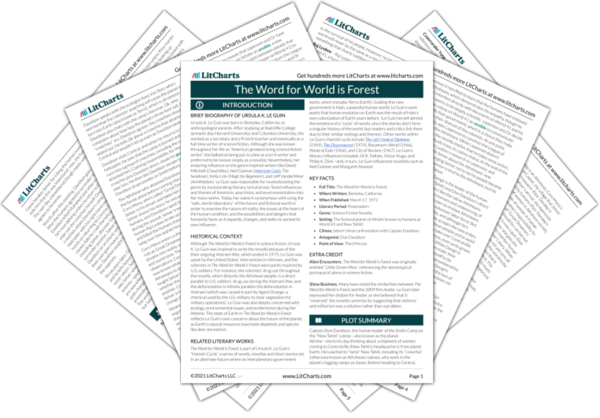This passage confirms that the Athsheans can’t return to the nonviolent people they once were. Because violence in the novella is cyclical, it always generates more violence. Even though Selver wanted to stop the Athsheans from killing anyone else after the final attack on Davidson, and even though people like Lyubov believed that the Athsheans would be able to stop killing if they chose to do so, it seems that violence has permanently altered their society. While the novella suggests that violence
is a choice that men make rather than a natural state of being, it also suggests that violence is never isolated and always has consequences.
